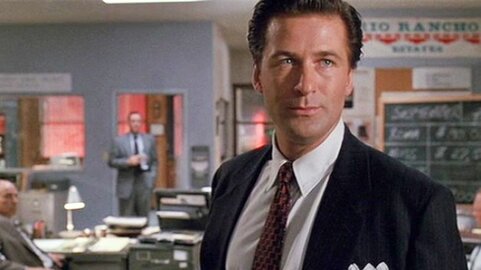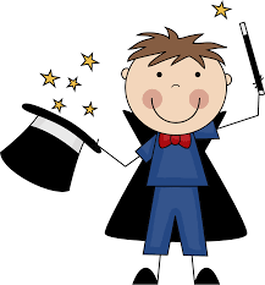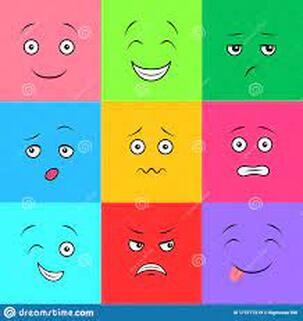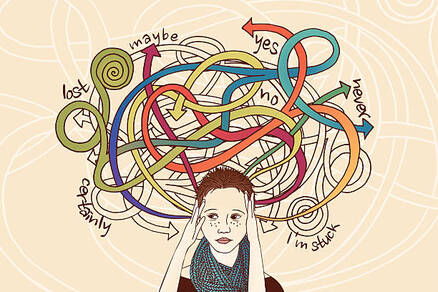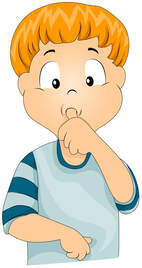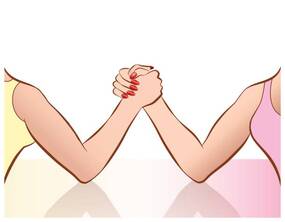|
While writing a poem can be a very tough challenge, getting people to read even the best of poems is almost always tougher. Poets face a serious "no win scenario" with marketing. If you don't market your poems, nobody will ever know they exist. If you market your poems, you risk looking desperate or self-absorbed. What's more, marketing is a very stressful, rough and tumble world. It's a shark tank mentality, while writing poetry is more of a Zen, one-with-nature and inspiration feeling. The difference between writing poetry and marketing it is as big as the difference between eating a nicely cooked steak or trying to eat a live cow. So what do we do? Actually, I was hoping you'd tell me! It's a very problematic obstacle and it's probably only going to get worse with the rise of AI platforms. Not because AI's will write good poetry, but because even more wannabes will flood the market cheekily devising a masterplan to use their AI word-salad to get rich and famous. It's going to be very, very ugly. And it's already pretty bad. Here are a few things I think may help:
Poetry for the most part only self-markets for dead poets. Something about being dead makes a poet more interesting. Unfortunately, you can't bask in the glory from six feet under and the light from your halo up-top past the Gates will blind you to earthly success. So, I leave you with these famous words, slightly paraphrased: "Do you know what it takes to sell poetry....?" One thing you can do is to have really solid, polished work. If you want some help with your poems, email at [email protected] OR [email protected] Or click a button below. Tally Poems Written: 311 Submissions: 51 Rejections: 21 (13 tiered) Acceptances: 0 Poem written today: "n/a" Mixing song "Coming Home" for release! Categories All
0 Comments
I write a lot of poems. Only about one in ten is worth a darn. I wish I knew a way to make this ratio higher. What's worse is, there's no pattern to creative inspiration. One day you might write two good poems in a row. At other times, it might be a week or two before you write anything decent. It's the same for most poets. Even great poets like T.S. Eliot and Emily Dickinson wrote more duds than masterpieces. Both Ezra Pound and Walt Whitman wrote more bad lines than good over their careers. I won't name any living, working poets by name -- but I'll say, I haven't seen many, if any, 21st century exceptions to this rule. And that's only seeing poets' published or posted works. My explanation for it is that we write poems for many different reasons, only some of which are connected to creating a poem for sharing or for publication. The only other answer I can think of is that writing good poems is just really tough and it takes a bit of luck like fishing or golf. Another possibility is it's just darned hard to do it all alone. Poetry is one of the only arts (like painting) where the artist is truly alone. Novelists have editors, musicians have producers, actors and actresses have directors and makeup people, and costume people, and people to blink for them, etc... Even dancers have a dance partner or a few musicians around. If you're a poet, it's all you. You think alone, write alone, and for the most part are the only "gatekeeper" of your works. It's a big job, and most poets resist being edited anyway. What do you think? Have you experienced poetic ratio? Are there other reasons forit? Found any hacks to get around it? Let me know! Tally Poems Written: 310 Submissions: 51 Rejections: 20 (13 tiered) Acceptances: 0 Poem written today: "Star Pools" Categories All Here's a quick tip to help you overcome procrastination. It really works if you give it a chance, but there's a catch. You have to write in a notebook, or keep a continuous doc or series of docs somewhere. If you're a poet who likes to really write on the fly, like without any schedule, tools, or method, this may not work so well. For me, getting started is always the toughest part of writing. Whether I'm writing a poetry or prose, it's writing the first line or sentence that holds me up. There are various well-known tricks to get around this, such as starting off your work day by editing rather than writing, "free writing" in a journal or some other platform, and -- everyone's favorite -- guzzling gallons of strong coffee. But I've found, for poetry, what works best is just leaving a "hanging title." This means, when I finish a poem in my journal, I sometimes jot down a title for the next poem. I just dream up a cool title, note it down, then start my next writing session by filling in the blank part. That is -- the poem! Even if you only wind up with a few lines for a particular "hanging" title, this little trick will get you writing quickly each day. A couple caveats: 1) It's not usually best to jot down multiple titles. If you do that, you'll overwhelm yourself even if you don't think you're doing so and kill the spirit of the whole thing. That said, sometimes, you get a lot of ideas for titles, so what are you going to do? 2) If the poem starts coming right there as you're jotting down the title -- if you hear a first line or something -- go for it. If not, refrain from jotting down too many notes etc. Just get the title down and let the Muses work on the poem when you're not looking. 3) Don't write down a title unless you feel a spark. If you start writing "Cat Poem 55," "Cat Poem 56," etc., the tip probably won't work as well. That's about it. As always, your mileage is sure to vary. If you're the kind of poet who comes up with titles last, you may not like this technique. I don't use it every day, but I've found it really works to get me going in some cases, and it's resulted in a quite a few good poems. Tally Poems Written: 309 Submissions: 51 Rejections: 20 (13 tiered) Acceptances: 0 Poem written today: "Talk Candle" Categories All I talk a lot about emotion in these blog-posts and the reason is because all good art, particularly poetry, is made of emotion. If you aren't willing to express emotion intensely, there's really not much point in trying to be a poet. The same is true if you just want to express one emotion over and over. If your poems are always happy or always sad, people will get bored with your work fast. The best thing you can do is to use a lot of different emotions, even in a single poem. I could cite hundreds of examples here, but let's just focus on two really famous poems. The first is "The Raven" by Edgar Allen Poe and the second is "Lady Lazarus" by Sylvia Plath. Sure, "The Raven" is famous for being synonymous for mourning, and rightly so, but if you look at the poem carefully you'll see it actually runs a gamut of emotions from boredom, to hope, to anger, and terror. Unrelenting grief is only one emotion, and it's profound, centuries strong sadness would not ring as fully as it does without a compliment of contrasting colors. Plath's poem is even more dynamic. It starts with submissive emotions of fear and self-loathing and rises to emotions that are best described as "godly." Along the way, Plath uses sarcasm, honesty, pity, anger, joy, and nostalgia to fuel her transformation from victim to avenging Goddess. That's what you want to do with emotion in a poem. You want to use it as both color and tempo simultaneously and you want to color with more than one crayon and keep time on more than a single drum. Tally Poems Written: 308 Submissions: 51 Rejections: 20 (13 tiered) Acceptances: 0 Poem written today: "Sisters" Categories All Should you ever just give up on a poem? Some poems come out almost fully formed, just perfect straight out of the fire, like a gift from from the gods. Others have to be wrangled, sawed, sanded, polished and, in some cases, given a full body-transplant. What makes it worse is, a poem can be this close to brilliance and then it takes months and sometimes years to actually get it right. So you have a decision to make as a poet. Luckily, you get the chance to make the decision over and over. Basically, what you have to decide with each poem is: how much can revision help? Usually the answer is: a lot. Even if you only make small changes or a small change to a given poem, the results can be dramatic. There are times, though, when you just have to let go. Some poems just fail. Unfortunately, there's no rule when it comes to making this judgment call. And it's liable to be different, in any case, for each poem. Given, these vagaries, here's a few points that I've found helpful over the years:
I also have a thought on not revising or refusing to revise your poems: that's why your poems aren't working for anyone else but you. So do your poems a favor and shine them as best you can. If you hate revising and polishing, consider two options (best used together!): 1) Have me do it for you! Click the "Poem Polisher" button below. I've helped lots of poets. 2) Use my 7 Secrets of Poetry pdf as a guide for revision. Tally Poems Written: 307 Submissions: 51 Rejections: 20 (13 tiered) Acceptances: 0 Poem written today: "Street Steel" Categories All My name is Daniel E. Blackston, and I have the following bad poetic habits:
1) I use words nobody understands. (Rhetoric) 2) My poems are too dense. (Accessibility) 3) I sometimes lose track of my theme. (Obscurity) 4) My closing lines could really be better. (Finishing) Don't get me wrong, it was hard to say those things publicly. And hard to say them even to myself. But this is the reality I face as a working poet and some version of it is your reality, too. If you think you don't have weaknesses, you're mistaken. There are no perfect poets. Some are very close, sure. But no-one gets it right all the time. Poets tend to carry their mistakes along with them and are reluctant to change. Look at Dickinson's galloping meter, Crane's obscurity, Plath's melodrama, Eliot's banality, or Poe's sing-song rhythms and rhyme. Sometimes the mistakes work for you, and that's probably why we cling to them, but -- for the most part -- our bad habits restrict our growth. At the very least, our bad habits show us where we can immediately try to improve. For me it's: have a point, say it clearly, and finish strong. How about you? Can you name your bad habits? Tally Poems Written: 306 Submissions: 51 Rejections: 20 (13 tiered) Acceptances: 0 Poem written today: "Tall Flowers" I actually think competition is good for poets. From ancient days of yore when Greeks competed for laurel crowns right on through to today's poets trying for the most "likes" on social media, competition can be like electricity -- a source of fuel and excitement to keep you moving. Competitors are mentors. On the other hand, if you take it too far, you can crash and burn. So how can you tell when competition is healthy? Here's a few good signs: 1) You're inspired to write a lot. Not just about poetry, but actual poems. 2) You get excited when you see a new poem by your competitor (s). 3) You accept that you probably can't better what the competitor does best. 4) You integrate as much as you can from the competition even if it means doing away with some of your most treasured habits and riffs. 5) You feel or see a path forward for your own work and feel that you have energy for the journey. Now here are signs competition is getting to you: 1) You naysay your competitor's work. 2) You feel you've been treated "unfairly" by life, or readers, or publishers. 3) You refuse to edit, change, or revise your work. 4) You dig up old works that you feel never got their just due and wave them around even if no-one seems interested in them. 5) You have problems sleeping or concentrating on your work because you're busy trying to cut your competition down to size in your imagination, or dream up compensatory strengths for yourself. In any case, the point where you no longer feel the least bit competitive is when you'll probably start to lose interest in creating new things. Or you may just start repeating yourself. Competition keeps us fresh and "young" and, well, no matter how good you get -- you can always find someone to envy! Click the pic above to read about a very famous poetry competition! Categories All Rote memorization has always been associated with poetry. Poets who can recite from memory get applause. It's equally impressive if you can quote Lord Byron or Mya Angelou from memory. It's only slightly less impressive if you can quote one of your own poems without a book or phone. That's why I want you to commit to memorizing one of your poems, with the intention of carrying it around in your head, ready to drop at any given opportunity. It should be a short, powerful, unforgettable poem. But if you can't manage that, it should at least be short. Don't overwhelm people. And don't add to much dramatic flourish to your reading. Let the words do the talking, or you'll seem too rehearsed. Once, in a car full of his female friends, a poetic rival challenged me to recite one of my poems. Luckily, I was up to the challenge and -- when I finished the poem -- everyone clapped. If I showed you the poem right now, I promise you wouldn't clap! It's not a great poem. What got people clapping was the fact that I could recite without flaw, from memory. It's like watching someone play a song right in front of you, or rap in front of you. They may or may not be a pro, but there's a natural excitement in just being around any decent live performance. So, do me a favor. Memorize one of your best, short poems. Then, if you want to, memorize another one later just so you don't look like a one-hit wonder. Tally Poems Written: 305 Submissions: 50 Rejections: 19 (12 tiered) Acceptances: 0 Poem written today: "N/A" * Three music demos recorded* Categories All Practicing any art at any level for any reason is a Good Thing. You don't need to make money, you don't need to move mountains, you don't need to dominate Tik Tok, Instagram, or Twitter. You don't need your face on a billboard or your hands printed in cement to get 100% of everything that art and creativity have to give. Fame and money are not art. They have nothing to do with art. Our culture confuses this beyond the ken of the average person to tell the difference, but that doesn't matter. The reality is: you can be rich and famous without talent and creativity and you can be a creative genius who doesn't have a follower or a dime. So what do you get our of being an artist that's not based in money or fame? It's a long list. There are items on it that, if you're not an artist, you probably haven't thought about since you were a child and wouldn't have known you lost until you found them again. When you see a work of art, part of the shine that comes off of it is that childlike imaginative power that's a direct connect to life. That freshness of discovery, self-expression and wonder. Artists live there. Your art will keep you healthy, happy, busy, and engaged with life until you no longer need it, or until your brush falls out of your dying hand. In any case, your life will be better, more exciting, and you'll bring joy to others by making art. So my advice is: do it. Tally Poems Written: 304 Submissions: 50 Rejections: 17 (10 tiered) Acceptances: 0 Poem written today: "Animal Dreams" Categories All I've been writing a lot of poetry lately and I've noticed that there's a big difference between inspiration and theme. By this I mean: you can get inspired by something, say the sight of the sun on a lake, but when you write the poem about the sun on the lake, the theme that comes out will almost certainly be something different than what you expected or felt when you got hit with inspiration. It's not always that way, but it's often that way. What's more, it seems as though the best poems are those that start from a point of inspiration but travel somewhere new, somewhere previously unknown. This may, in fact, be one of the reasons that what we call "inspiration" feels so thrilling, because we instinctively know we're about to travel somewhere new. For me it's much more vital to follow inspiration than theme. If I start out thinking "I'll write a poem about how bad war is..." The results are usually blah. If I start off thinking, "Wow, the way that tree-shadow looks on the street is cool..." I often get good poems. I'm sure some poets are theme-first and there's nothing wrong with that. For these poets, theme is inspiration. But I maintain it's not always necessary to know your theme, and, even if you think you do, it's very likely others will see something different. So don't get too attached to your themes. The opposite goes for your inspiration. Stay as attached as you can!!! Tally Poems Written: 302 Submissions: 50 Rejections: 17 (10 tiered) Acceptances: 0 Poem written today: "Off-Task" Categories All |
